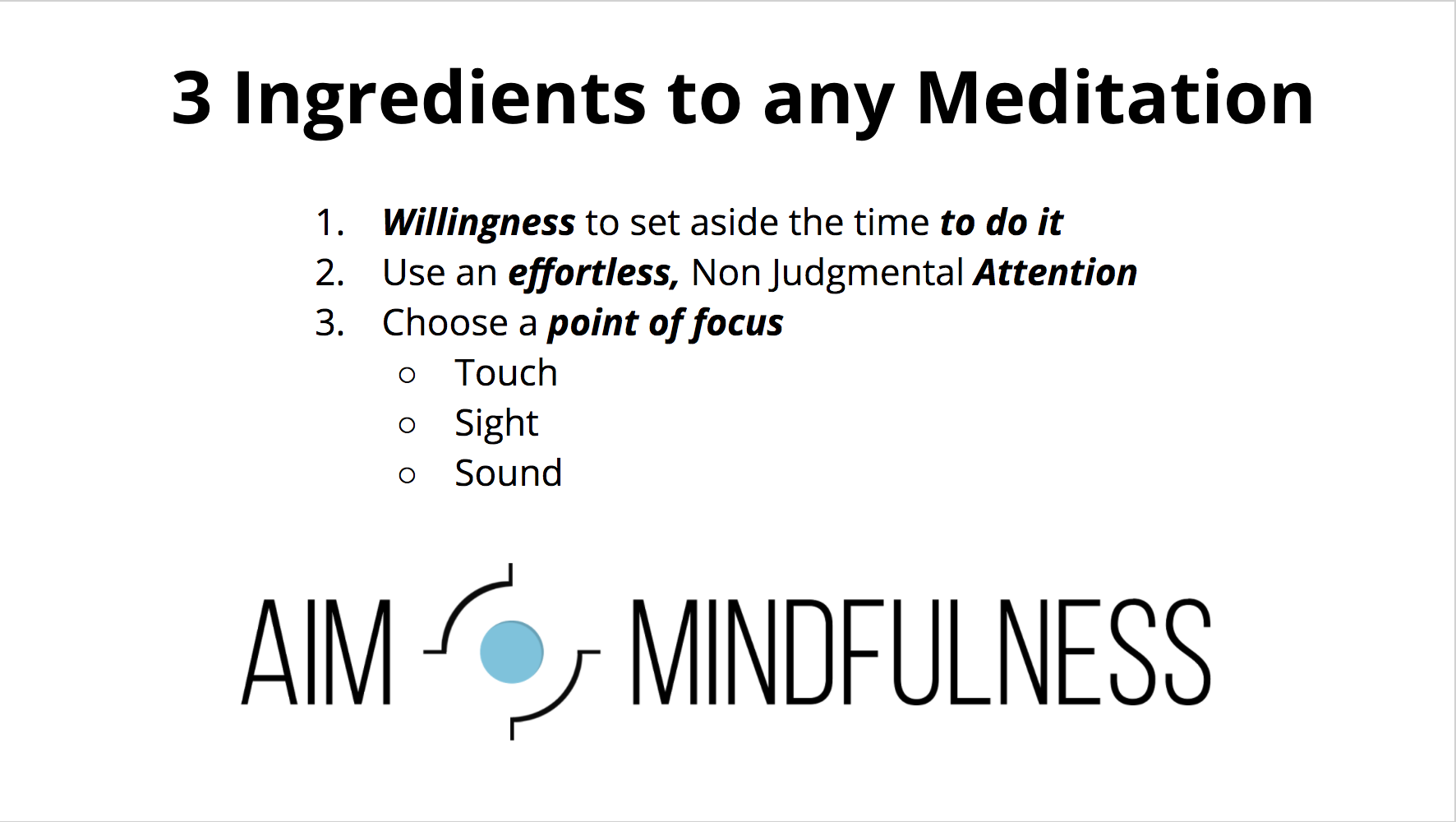
Whether you're an elite athlete, parent, CEO, co-worker or simply a juggler, performance expectation is inevitable. AIM's primary purpose is to provide meditation and mindfulness techniques that invite flow into your performance environment and everyday life.
Meditation is a transformative practice on a variety of different levels. Practitioners from the ancient eastern traditions have known this for a couple of thousand years, give or take. In the last decade, empiriacal research on the benefits of a consistent meditation practice has ramped up. Modern studies are continually getting larger and more intricate. Although many of these investigations show correlational evidence to the positive effect of meditation, the results are substantially consistent in displaying how this practice contributes to enhancing well-being and ultimately human performance.
AIM teaches a secular training rooted in logic derived from ancient traditions; you don't have to be religious to learn the techniques. In my opinion, those from ancient traditions such as Zen Buddhism for example, have been in the lab a lot longer than modern science. Teachers and practitioners from these traditions are scientists of the human condition and have developed metacognitive or mental skills that allow for the best version of ourselves to naturally arise on a more consistent basis. That includes how we feel on a day to day basis, how we treat others around us both in our inner circles as well as those outside of our intimate relationships, and from an athlete point of view, it includes how consistently we experience peak performance.
In a recent post, I laid out the top 7 reasons why many people don't pursue meditation.
Today we'll take a look at the 3 ingredients required to practice any meditation technique.
1.) Your Willingness or Resolve. The willingness to set aside the time to practice is the biggest and only obstacle to developing a consistent meditation and mindfulness practice. I like to make it clear that the benefits of the practice come with a daily practice. Settling the mind's activity can seem daunting and frustrating, but like anything we're learning or proficient at for that matter, persistence is required. Meditation is no different. It's best to approach meditation with a commitment to stick with it.
2.) An Effortless Non-Judgmental Attention. During meditation, we use an effortless focus, it's the same type of attention you're using to read these words right now. Rather than intense, judgemental focus. We use an effortless, open focus - a soothing attention. Forcing concentration can even lead to a headache and that is clearly something we don't want to happen in our sessions.
3.) Choose a point of Focus. The focus meditations are often simple like a sound, sensation or something you see. A common sensation to use as a point of focus in meditation is the sensation that we feel in our nostrils as we breathe in and out. This in and of itself is a powerful and transformative technique. You can also focus on a sound whether you make it, hear it or think it. And you finally you can focus on something you see. You can visualize colors or images in your mind's eye or you can use an external point of focus that you gaze at like a candle flame or a geometric pattern.
Although mindful eating is an excellent practice, I don't suggest meditating on the sense of taste, as it isn't something that we can consistently call on as a mindfulness practice compared to breath or body awareness for example. The same goes for the sense of smell. Though aromas can create a mood or a memory that supports your meditation practices, scents tend to fade from you awareness in a short period so are not ideal to use as a focus for meditation.
Congratulations @aimmindfulness! You have received a personal award!
Click on the badge to view your Board of Honor.
Do not miss the last post from @steemitboard!
Participate in the SteemitBoard World Cup Contest!
Collect World Cup badges and win free SBD
Support the Gold Sponsors of the contest: @good-karma and @lukestokes
Downvoting a post can decrease pending rewards and make it less visible. Common reasons:
Submit
Congratulations @aimmindfulness! You received a personal award!
You can view your badges on your Steem Board and compare to others on the Steem Ranking
Do not miss the last post from @steemitboard:
Vote for @Steemitboard as a witness to get one more award and increased upvotes!
Downvoting a post can decrease pending rewards and make it less visible. Common reasons:
Submit